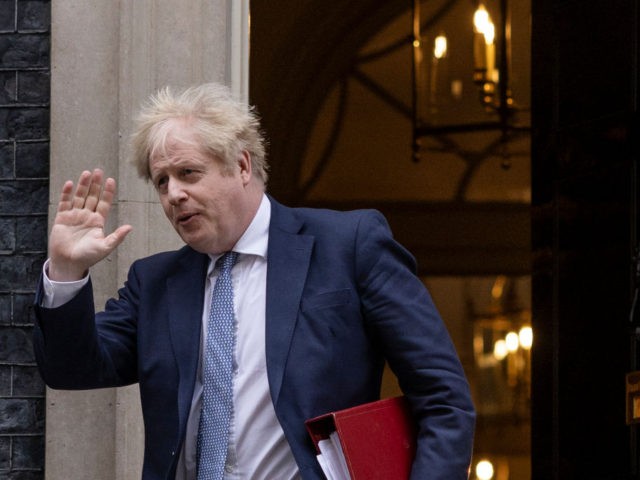Freshly returned from Kyiv and meetings with the Ukrainian President, Boris Johnson has told his Parliament that the UK should lead the West’s sanctions against Russia, even if his approach to them is at odds with Zelensky’s advice on discouraging Putin.
Asked to update the house during the weekly questions and answers session in the United Kingdom’s Parliament, Prime Minister Boris Johnson said his “mission” is that the nation should “stand shoulder-to-shoulder with Ukraine, for our country to show we stand with the people of Ukraine and we stand for the sovereign and territorial integrity of Ukraine at a very difficult time.”
This is important, he said, because Russia was massing troops on the Ukrainian border. Indeed, if Johnson’s estimations are correct the much-discussed escalation is accelerating at remarkable speed: when in Kyiv yesterday the PM said there were “more than 100,000 Russian troops” on the border, whereas in Westminster today his estimate of the number had risen to “about 125,000 Russian troops massing”.
Johnson Announces Ukraine Cash Giveaway… After Denying Britons a Tax Cut https://t.co/igjCOTiFWY
— Breitbart London (@BreitbartLondon) February 2, 2022
While the UK was supplying “lethal but defensive” weapons and training to Ukraine, the main thrust of his support, Johnson said, was in sanctions on Russia. He told Parliament that: “The job of the UK is to lead the West in bringing together the most important countries in creating a package of economic sanctions that will deter President Putin from what I believe would be a disastrous miscalculation, and also to strengthen our support for the Ukrainian people, and indeed the Ukrainian army.”
As the Prime Minister outlined yesterday, the sanctions on Russia he envisions would kick in the moment “one Russian toecap” crosses further into Ukrainian territory. This, as it happens, is entirely at odds with the help the Ukrainian government is actually asking for, but isn’t getting from anyone.
As Breitbart News’s Frances Martel reports, Ukraine’s President Volodymyr Zelensky expresses himself in extremely clear terms:
…Zelensky insisted that plans to sanction Russia after a further invasion of Ukraine did not make sense.
“My opinion is well-known here. The word ‘deterrence’ testifies to its logic. Any measures are effective prior, not after. It’s prevention, not something that comes after. Prevention is better than [cure],” Zelensky told reporters, according to the Ukrainian state news agency Ukrinform.
Zelensky similarly asserted that sanctions work, but only before the target of the sanctions engages in the behavior the sanctions are meant to stop.
“Sanctions are considered to be a preventive tool because they can be applied and then lifted. If there is an invasion by Russia, do you introduce powerful sanctions after we might have already lost several territories?” Zelensky said in remarks to the Washington Post in December. “Once you introduce sanctions, what will Russia do?”
Boris Johnson, on the other hand, says until Russia launches fresh military campaigns against Ukraine “it is vital that diplomacy finds a way forward”.
As things stand, the UK already has sanctions against Russia in place, some established the last time Russia invaded Ukrainian territory, and others in reaction to other Russian acts, like the Magnitsky sanctions. Referring to the sanctions, Johnson said Wednesday that “This country has come down very well on dirty money from Russia. That’s why we have sanctions on Russia.”
Notably, despite the UK imposing these sanctions on Russia, Moscow was not moved to give occupied territory back to Kyiv.

COMMENTS
Please let us know if you're having issues with commenting.